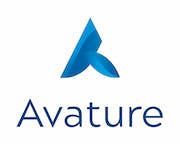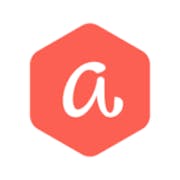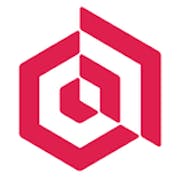Looking for the right referral software? Our comprehensive buying guide highlights features and benefits to help you make an informed decision. Find your perfect match today!
Are you tired of struggling to find new customers for your business? Look no further than referral software. By implementing a referral program, you can turn your happy customers into brand ambassadors and drive a steady stream of new business. But with a wide range of options on the market, it can be overwhelming to choose the best tool for your company. That's why we've created this buyer's guide, to help you navigate the various advanced features, pricing models, and integrations of the top providers. Whether you're a small business just starting out or a large enterprise looking to scale, this guide will provide you with the information you need to make an informed decision and start driving growth through referrals.
What is a referral software?
This is a digital tool that enables companies to acquire new customers through referrals. Using this technology, companies can incentivize their existing customers to refer their friends, family and colleagues to their products or services. It is used to efficiently and effectively manage the entire process of referring, ensuring that customers receive their incentives and that the company can track the success of their referral program.
Its common use cases include:
- Customer acquisition: Companies can use referral technology to drive new customer acquisition by incentivizing their existing customers to share their products or services with their personal network.
- Employee referrals: It can be used to drive employee referrals, where current employees can refer new talent to the company. Surveys regarding the benefits of employee referral programs show that 88% of employers utilizing or implementing them reported that recruited candidates were of better quality than other candidates.
- Influencer marketing: A referral platform can also be used as a tool for influencer marketing, where companies can partner with influencers to promote their products or services to their followers.
- Lead generation: Companies can also use referral software to generate leads, where they can incentivize potential customers to provide their contact information or try out a demo in exchange for a reward.
This system is typically adopted by companies of all sizes, from startups to large enterprises. It is particularly popular in industries such as e-commerce, software, and SaaS, as it provides a cost-effective alternative to traditional marketing channels. Additionally, companies that prioritize customer loyalty and positive word-of-mouth are likely to adopt this application in order to leverage the power of their existing customer base.
What are the benefits of utilizing a referral solution?
This innovative tool can help organizations to tap into their existing customer base and leverage word-of-mouth marketing, which is one of the most effective forms of advertising. Let us explore the main benefits:
- Increased customer acquisition: A successful referral program allows businesses to encourage their existing customers to refer their friends and family. This can lead to a significant increase in customer acquisition and can be particularly effective for startups or businesses looking to expand their customer base quickly.
- Cost-effective marketing: Referral marketing is a cost-effective way to generate new leads and sales. By leveraging your existing customer base, you can reduce your marketing spend and achieve better results than with other forms of advertising.
- Improved customer loyalty: Happy customers who refer their friends and family to your business are more likely to become loyal clients themselves. This powerful tool allows you to reward your existing customers for their loyalty and can help to build stronger relationships, keeping your customers happy.
- Higher conversion rates: This business tool can help to improve your conversion rates by targeting potential customers who are already familiar with your brand. These leads are more likely to convert into paying customers than those generated through traditional marketing methods. According to referral marketing statistics, 14% of users who land on a referral page take action.
- Valuable customer insights: Referral software can provide valuable insights into your customers' behavior and preferences. By tracking referral activity, businesses can gain a better understanding of their customers and use this information to optimize their marketing strategies.
- Revenue growth: This technology can drive significant revenue growth by reducing acquisition costs, increasing customer loyalty and lifetime value, fostering brand advocacy, and providing valuable data for continuous improvement. Studies have shown that 86% of businesses with structured referral programs have experienced revenue growth within a two-year period.
By leveraging the power of word-of-mouth marketing, businesses can achieve better results and build stronger relationships with their customers and reduce their marketing spend.
10 key features of a referral program software
This powerful marketing tool allows businesses to leverage their existing customer base to attract new prospects. By incentivizing existing customers to refer their friends and family, referral software enables companies to tap into a powerful source of high-quality leads that can help their business growth and enhance customer base rapidly. Here are some of its common features:
1. Easy integration: Referral technology should be easy to integrate with your existing marketing tools. This means that you can seamlessly incorporate it into your overall marketing strategy and track metrics from a single dashboard.
2. Customizable rewards: One of the key features of a referral tool is the ability to offer custom rewards to customers who refer new business. This can include discounts, free products or services, or cash incentives.
3. Automated tracking: It typically includes comprehensive tracking of referrals and rewards. This ensures that everyone who refers a new customer receives the appropriate reward, and that your business can track the success of your referral program with accuracy.
4. User-friendly interface: It should be easy to use and navigate for both customers and businesses. This includes clear instructions on how to refer new business and how to claim rewards.
5. Social media integration: Many referral solutions include social media integration, which allows social sharing , where customers share referral links or promotions with their followers.
6. Mobile optimization: With an increasing number of customers accessing online content from their mobile devices, it’s important that referral software is optimized for mobile use.
7. A/B testing: The software may include A/B testing capabilities, which allow businesses to test different promotional offers and various types of rewards to determine which are most effective.
8. Analytics and reporting: Comprehensive analytics and detailed reporting capabilities are essential components of a successful referral app. This data can help businesses understand which referral sources are most effective, which rewards are most appealing to customers, and how many new customers have been referred through the program.
9. Multi-channel support: It should also support multiple channels, including email, social media, and SMS, to ensure that customers can refer new business in the way that’s most comfortable for them.
10. Integration with loyalty programs: Finally, some referral software solutions are designed to integrate seamlessly with existing loyalty programs. This enables businesses to further incentivize customers to refer new business by offering additional rewards or bonuses for referrals.
What to consider when purchasing a referral tool?
There are a wide range of solution options available on the market, and choosing the right one can be a challenge. Here are some key factors to consider when making your purchase:
1. Integration options - Make sure that the referral platform you choose can integrate seamlessly with your existing technology stack. This will ensure that the implementation process is smooth and that you can get up and running quickly.
2. Customization options - Every business is different, and the tool you choose should be customizable to meet your specific needs. Look for one that allows you to customize the entire referral process, the rewards offered, and the look and feel of the program.
3. Analytics and reporting - To gauge the effectiveness of your referral program, you need to be able to track key metrics and analyze the data. Look for a solution that offers detailed analytics and reporting features, including metrics like conversion rate, referral source, and reward redemption rate.
4. Mobile optimization - In today's mobile-first world, it's important to ensure that your referral platform is optimized for mobile devices. Make sure you choose one that offers a mobile-friendly user interface and supports mobile-specific features like in-app referrals.
5. Security and compliance - The application will likely involve the collection of sensitive customer data, so security and compliance should be top priorities. Look for one that offers robust security features like encryption and data protection, as well as compliance with relevant regulations like GDPR and CCPA.
By considering these factors, you'll be able to choose a referral software solution that is tailored to the needs of your business, drives customer engagement and retention, and delivers measurable ROI.
Industry trends for referral software
Referral technology is an increasingly popular tool used by businesses to drive customer referral growth. As we move into 2024 and beyond, there are several key trends emerging in the space. One important trend is the incorporation of artificial intelligence (AI) and machine learning into referral software platforms. These innovations allow for more personalized and targeted referral campaigns that can significantly boost conversion rates.
Another trend is its integration with other marketing automation tools, such as email marketing and social media management platforms. This makes it easier for businesses to manage and measure the success of their referral programs.
Finally, there is a growing focus on gamification and rewards-based systems in referral software. These approaches incentivize customers to refer more frequently and can lead to increased customer engagement and loyalty. As businesses continue to seek out new and innovative ways to grow through referral marketing, we can expect to see continued evolution and growth in this space.
Conclusion
Choosing the right referral software can be a game-changer for your business, driving growth through customer advocacy and organic promotion. When making your decision, consider the key features highlighted in this guide and test potential solutions through demos or free trials. This ensures that you select a tool that will maximize the effectiveness of your referral application. Take your time to research, compare, and choose wisely. A well-implemented referral program, powered by robust software, can significantly contribute to your business's long-term success and a stronger brand presence.









